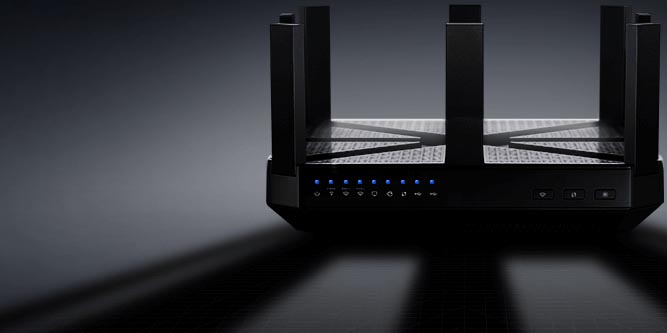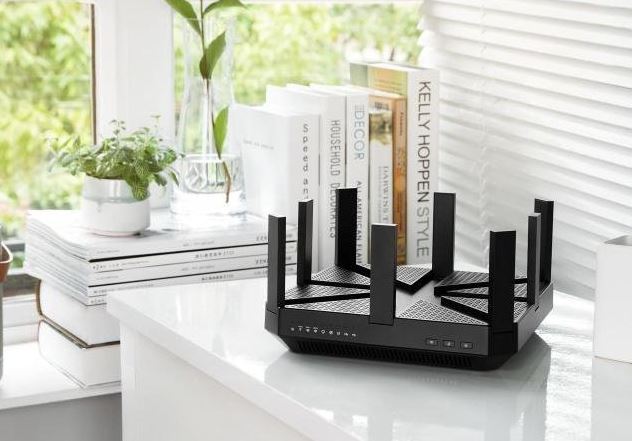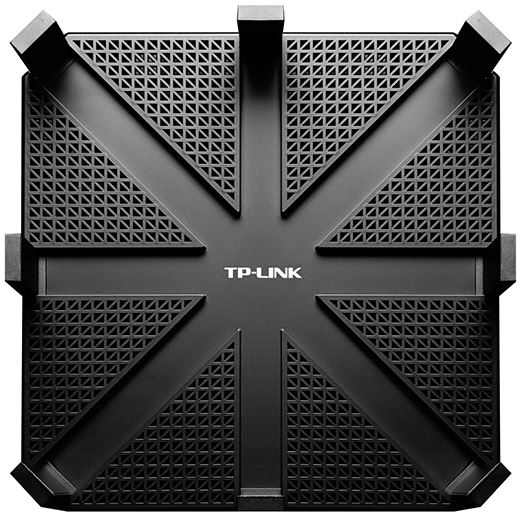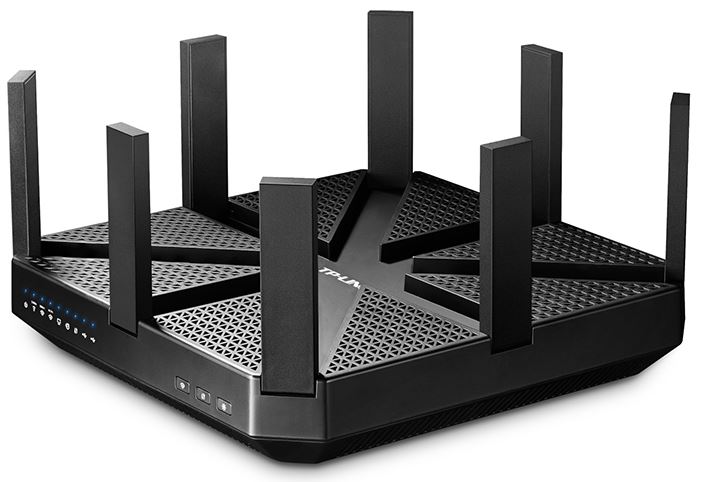Whether you’re at home or in the office, the importance of a reliable high speed Internet connection is critical to both your productivity and enjoyment. If you’re like most, you demand the most out of your network and the need for a fast, secure, top of the line router cannot be overlooked.
If you’ve been searching high and low for the best, fastest and most advanced wireless router available, you may have already come across the TP-LINK Talon AD7200 Tri-Band WiFi Router. Often bragged about and labeled as the fastest option currently available, it utilizes the latest and most powerful technology to offer speeds of up to 7200 Mbps per second. Known as the first router to offer 802.11ad technology, it’s up to ten times faster than 802.11ac and up to thirty times faster than 802.11n thanks to the new, groundbreaking 60 GHz band.
We’ve been receiving a lot of inquiries from our readers lately regarding the new TP-LINK Talon so we’re here to determine if the expensive price point is well worth it or something that you should wait on. We’ll take a close look at all of its features, specifications and benefits to see if it’s truly as incredible as they make it seem.
Tri-Band
For the longest times, routers have been utilizing dual band technology as a typical standard. Over the last couple years, we’ve seen an introduction of “Tri-Band” routers, but what does that really mean? Rather than broadcasting a WiFi signal through two channels, the Talon uses three channels of different frequencies to offer the best in both range and speed. The 2.4 GHz band is capable of 800 Mbps, the 5 GHz band is capable of 1733 Mbps, and the new 60 GHz band is capable of a whopping 4600 Mbps. When you combine all of these data rates together, you get 7133 Mbps – hence the name AD7200.

This new 60 GHz band is something that we haven’t seen before, but truthfully – it’s quite impressive. With speeds of up to 4.6 Gbps, it’s clearly the best option for massive file transfers, 4k high definition video streaming, online gaming and other bandwidth intensive tasks that could otherwise “bog down” or tie up your connection to a snails’ pace. While this new band doesn’t excel with range, that’s what the other two bands are designated for. The 2.4 GHz and 5 GHz channels are intended to provide far-reaching WiFi access in hard to reach areas while still offering plenty of transfer speeds for any client that’s utilizing them.
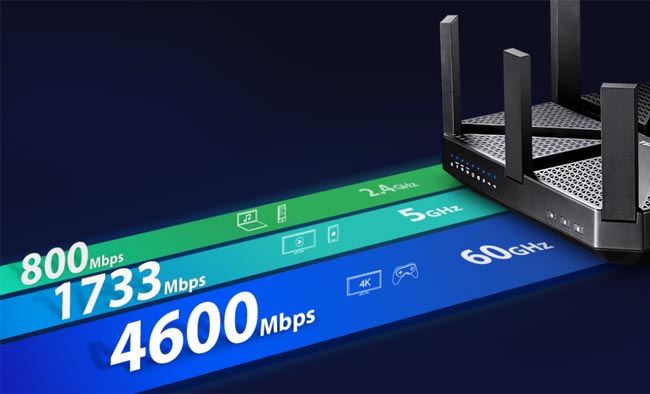
Smart Connect
The TP-LINK Talon uses these multiple bands and runs them simultaneously so each device on your network can take advantage of the specific one that’s most suitable for the situation at-hand. While you can manually join and assign a specific channel to certain devices, the Smart Connect feature can do this more efficiently, all on its own.
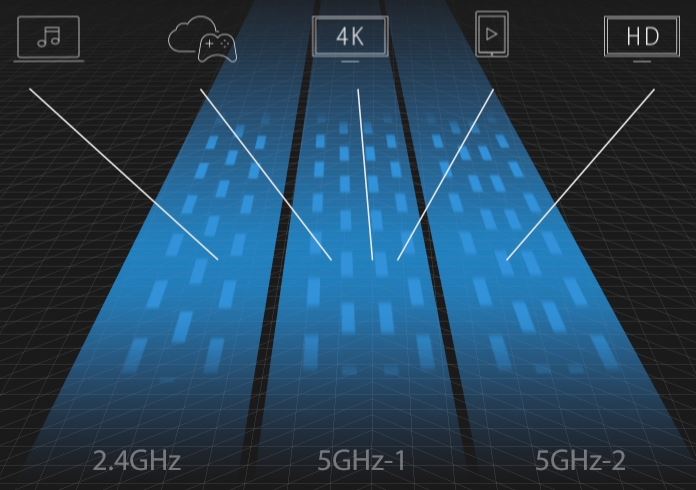
Designed to simplify the entire process and automatically prioritize specific wireless devices to certain bands, it’ll find the most appropriate channel and connect you to it without any guesswork. By doing this, the network traffic is properly balanced so delays and interruptions are reduced dramatically. While this is something that you can still manually do, assigning too many connections to a certain band can be problematic if you overload one and don’t take advantage of the other.
Best of all, this is all done on its own so you never need to create different credentials to join the proper channel. Once you connect with a specific device, the router will automatically determine the resources you need and use a complex algorithm to assure that you’re assigned the most ideal one.
MU-MIMO Technology
While most traditional routers use a single connection for communicating between your device and the access point, MU-MIMO or “Multi-User, Multi-Input, Multi-Output” is a definite improvement that assures the best load times for a lag-free experience each and every time you connect. Rather than serving one user at a time, MU-MIMO takes the place of SU-MIMO (single user MIMO) and offers multiple data streams simultaneously.
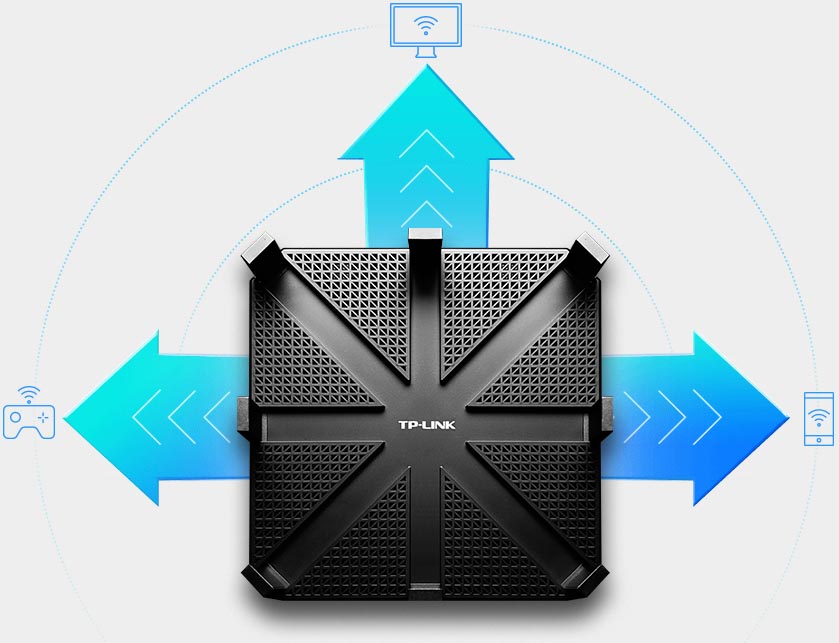
MU-MIMO increases the throughput and reduces any latency by not requiring devices to time-share their connection with other devices or clients that are on the network at the same time. Think of it as a three lane road rather than a single lane road. If you’re waiting for a vehicle in one lane, you don’t necessarily need to wait – you can switch lanes and bypass them to your destination. It’s designed to increase the capacity of your network so all connected clients can utilize the most bandwidth possible.
Processor
Often seen as the “heart” of the router, the processor is an incredibly important component that shouldn’t be overlooked. Utilizing a powerful 1.4 GHz dual-core processor, the TP-LINK Talon is ready right out of the box for high-demand activities that require the most out of your connection. Whether you’re an online gamer, someone who streams HD content, or you find yourself consistently downloading large files, the 1.4 GHz dual core CPU assures that there’s plenty of power to go around. Complex, multi-client connections typically contain some of the most high-demanding tasks, especially when multiple clients are trying to access your network at the same time.

We believe the processor within the TP-LINK Talon is quite sufficient and offers much more speed and processing power than most will ever fully utilize. It’s definitely nice to see that they didn’t skimp in this regard since most network infrastructures require a powerful CPU to assure that constant lag and buffering are never an occurrence.
Additionally, it’s equipped with 512 MB of memory and 32 MB of flash memory for quick decision making so that each client is able to achieve unprecedented speeds without any hassle.
Antenna Array
One thing you’ll initially notice about the Talon is the unique look it carries. Although many ‘top of the line’ routers have several external antennas just like the Talon, none of them have the same ingenious antenna array like it. With eight visible, large external antennas sticking straight up from every corner and side, it’s quite apparent that TP-LINK took every consideration into making sure that the wireless range is always impressive. But there’s more under the hood than what meets the eye.
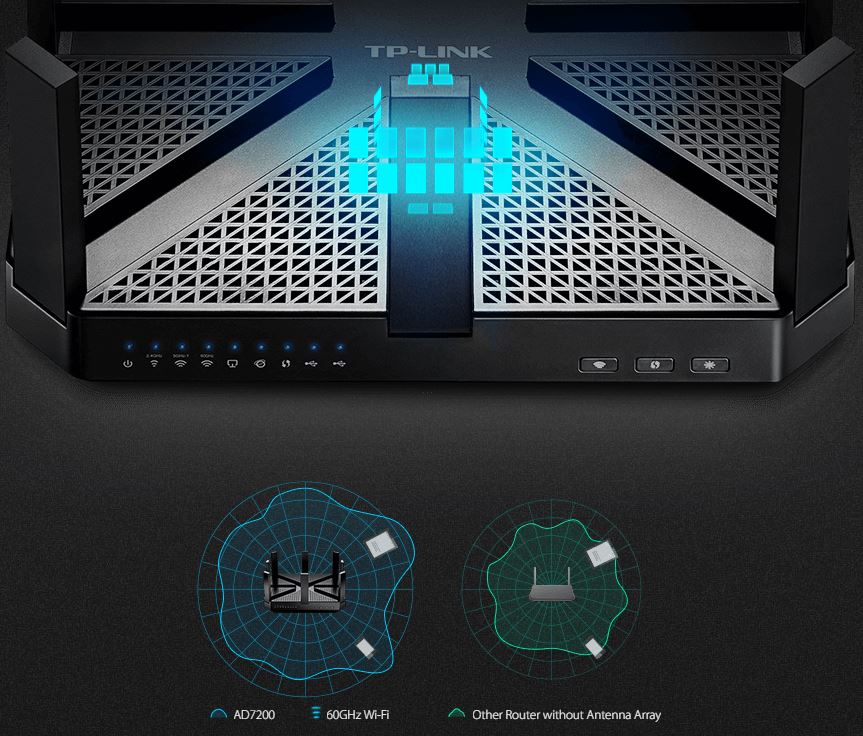
These eight high-gain external antennas are part of a more complex internal structure that includes a total of 32 antennas that form a special assortment to ensure that each WiFi signal is concentrated and focused on offering the best data transmission possible. Range, reliability and overall speeds are inherently increased because of this antenna array – unlike any router we’ve seen to date.
Beam Steering
As another attempt by TP-LINK to increase the overall reliability offered by the Talon, they made sure to incorporate the use of Beam Steering technology. While utilizing the 60 GHz band, it’ll find the best and least resistant way to communicate between your connected devices and the access point, thus ensuring a stronger connection. If any physical object or obstruction is in the way, the signal will automatically go around and “steer” towards the best path of communication.
Connections
Although wireless connections are often utilized the most, the need for an assortment of wired, physical connections should never be overlooked. Located on the back of the router are two USB 3.0 ports, and four Gigabit Ethernet ports. The USB ports are essential for connecting any external peripherals or accessories that you’d like to be easily accessible from anywhere on your network such as a printer, camera, hard drive, flash drive, etc. The Gigabit Ethernet ports are ideal for any wired connections that don’t require the use of WiFi such as a desktop PC, 4K UHD TV or network attached storage.

Also on the back is a reset button, power switch and an Internet port for connecting your modem – pretty standard and typical of what you’d see in any other router.
Additional Features
Although we’ve covered some of the core-features that are most anticipated, there are some other features that are worth mentioning. These include VPN access, offline downloads, guest network and advanced parental controls. While these aren’t unique to the Talon, they’re definetely an added bonus to keep your network running the way you’d like it to.
Final Thoughts
Utilizing some of the best and most advanced features we’ve seen to date, the TP-LINK Talon AD7200 Tri-Band WiFi Router offers everything you’d want and more when it comes to a secure, reliable and fast connection. Designed for high-demand users who require the most out of their wireless network, it’s packed from head to toe with exciting technologies that all play a part on offering unparalleled enjoyment for both home and workplace infrastructures.
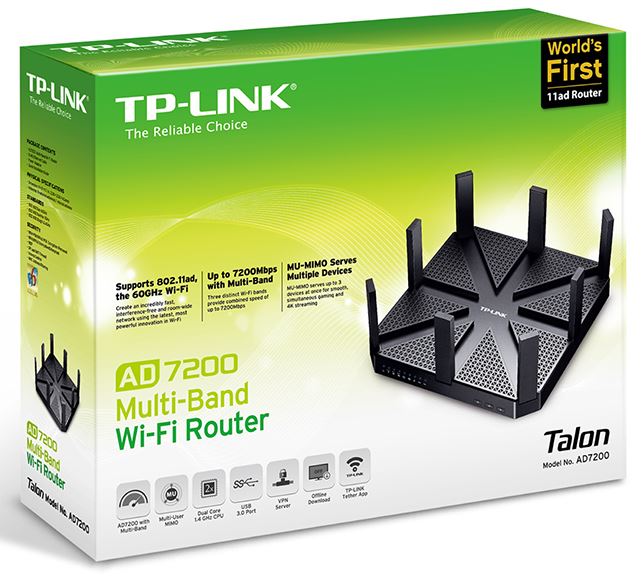
Offering remarkable speeds of up to nearly 7200 Mbps on multiple bands, there’s plenty of bandwidth and available transfer speeds to go around for multiple users at once. Thanks to the new 60 GHz band, you can rest assured knowing that all of your 4k video streaming and resource-intensive online gaming can be enjoyed without any lag or latency issues. Additionally, the unique antenna array paired with MU-MIMO and Beam Steering technology make for outstanding range for even the largest of homes and offices that need a significant upgrade.
While the range and transfer speeds are impressive, nothing would be possible if it wasn’t for the 1.4 GHz dual core processor that’s paired with 512 MB of RAM and 32 MB of flash memory.
Truthfully, it’s quite difficult to find anything potentially wrong with the new TP-LINK Talon AD7200 Router, other than the expensive price tag it comes in at. With an MSRP of $400, it should be seen as an investment that’ll be heavily utilized for years to come. Backed by an impressive 2 year warranty and 24/7 technical support, TP-LINK is always available to assist you with anything from setup to configuration and beyond. Overall, we’d highly recommend it if you’re looking for the ‘best of the best’ without cutting any corners in the process.
Meet Ry, “TechGuru,” a 36-year-old technology enthusiast with a deep passion for tech innovations. With extensive experience, he specializes in gaming hardware and software, and has expertise in gadgets, custom PCs, and audio.
Besides writing about tech and reviewing new products, he enjoys traveling, hiking, and photography. Committed to keeping up with the latest industry trends, he aims to guide readers in making informed tech decisions.

